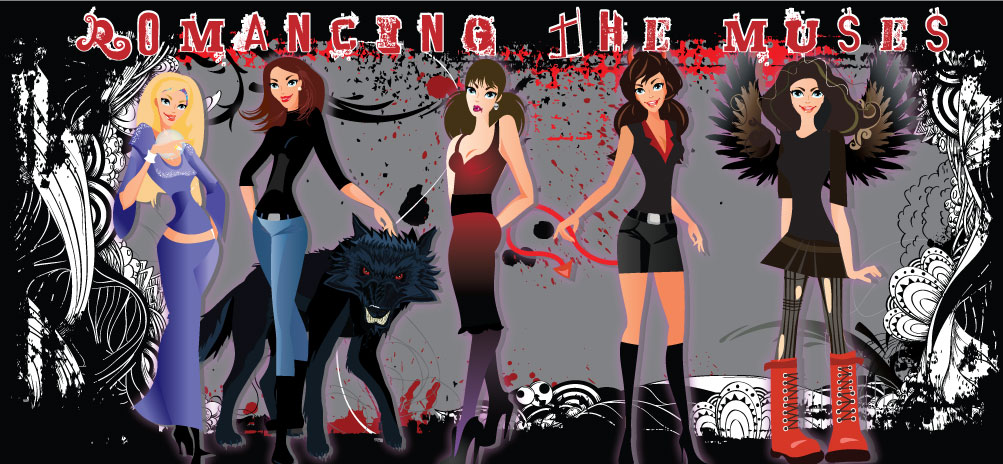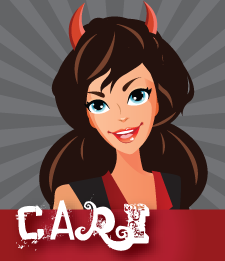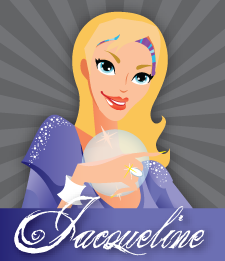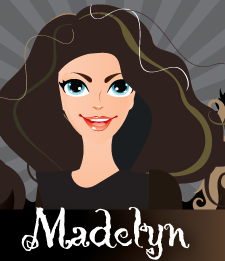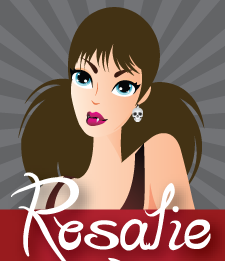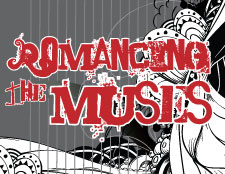Today on Romancing the Muses, I’d like to welcome author, Sarah Ballance, to share some of her insights, things she’s learned along the way, and get some info on what we might expect from her in the future.
MUSES: Tell us a bit about the process behind your debut publication. What did you learn? Is there anything you know now you wish you’d known then?
S. BALLANCE: I had to learn everything, LOL. I had what I now recognize as an "outsider's view" of the publishing process—i.e., write a book, get it published. And that's what I did. I wrote a book, sent it to Noble, and ended up with a contract. At the time I had no idea how things were supposed to work, so I can honestly say I'm grateful I managed to make a few good decisions—more on blind luck than anything, but I'll take it! However, after reading the experiences of some other authors, I've learned you really can't put too much thought into which publisher you choose for your work.
MUSES: How quickly did it take you to realize that writing the book is just the first part in a very long battle?
S. BALLANCE: Oh, my gosh. No one could have convinced me writing was the easy part, and now I find myself telling other aspiring novelists the same thing (and I’m probably getting the same Look, lol). I'd say I was pretty well clued in after I spent about two weeks following the release of my first book trying to do something with my website and blog, and that was just the beginning. A year later, I'm still trying to feel my way through the responsibilities of being a published author, but WOW, what an incredible ride!
MUSES: What is your opinion on reviews?
S. BALLANCE: They're one person's opinion. I know it's easier said than done at times, but an author needs to read a review as objectively as possible and take from it what they can. I've had a time or two where a reviewer made a specific point with which they found fault and when I thought about it, I had to agree. Those moments make me feel like I've improved as an author, and that's where I find the most value in a review.
MUSES: Is there some aspect of writing you find more challenging than another? Can you share what that is?
S. BALLANCE: Apparently I have some sort of author defect when it comes to writing sex—it seems to cause flu-like symptoms and periods of zero productivity. The logical conclusion would be to eliminate it from my writing, but that's less of an option than writing it to begin with. (I guess my husband is right when he says I'm impossible to argue with, LOL.) The problem isn't that I don't want the sex there … the problem is being able to capture everything in a way that's true to the story and my characters' emotions. Um, ARGH.
MUSES: How much of what you write is from experience?
S. BALLANCE: To some degree, all of it. I don't have enough confidence to tackle a plot that's totally unfamiliar, so while the story itself is pure fiction, there's something in there I'm comfortable with. I'd love to branch into deeper suspense plots which require more research, but so far I've stuck to my zone.
MUSES: You have developed quite an Internet presence between your interviews, giveaways, and author spotlights. How do you find the time to write when you seem to be everywhere?
S. BALLANCE: Oh, I blame the kids. I can't get any writing done during the day, so I use stolen moments to make the rounds and respond to interview questions and reader messages. I don't even try to write until after dinner when my husband is barring the door to keep the kids away from me. In that sense, I'm not using "writing time" for my internet presence, LOL. Things still get hectic when I'm trying to do a dozen things at once, but that's just generalized chaos. Writing time equals sanity for me, and not one of my crew wants to mess with that!
MUSES: What does an author have to do to capture your attention?
S. BALLANCE: Make me laugh.
MUSES: What authors have most influenced you in your journey? Do you try to emulate them in your own writing?
S. BALLANCE: While I definitely have mad love for a couple of awesome authors. I think my biggest influence from others has been the revelation that I have to do this my way. When I wrote my first book I felt I had to follow some set of rules, and when I kicked that shell I actually kind of developed a voice. That is what I'm most proud of, and I hope I can continue to grow into a better version of me.
MUSES: Tell us a bit about your favorite literary character, and what qualities made him/her stand out as more than just a name on a page.
S. BALLANCE: Daegan Raeliksen, from Renee Vincent's RAELIKSEN, is hands down the character I can't stop thinking about. I don't want to give her story away, but suffice to say I've yet to read the second book in her trilogy (even though I have my copy sitting on the table beside my bed) because I can't move on from his character. If anyone wants to know what a three dimensional character is, look no further than this.
MUSES: When you’re not writing or reading, what typically keeps you occupied? What do you enjoy doing in your free-time?
S. BALLANCE: Free time? Huh? LOL. I have six kids. One just hit the big oh-one and the rest are scattered to age twelve, and we homeschool. Translation? My biggest pastime outside of parenting and schooling is yanking my hair out, although so far I've maintained the patience to only pull the gray ones. Should we manage to escape the confines of our acreage, however, we prefer to do so on our boat. Second choice? The beach.
MUSES: Any harsh realities would you wish to impart on aspiring authors?
S. BALLANCE: For most of us, one book release is not going to result in vast riches. There seems to be a misconception out there that us Average Joe published authors are rocking six figure incomes, but I dare say the majority are happy to be able buy groceries when the ol' royalty statement arrives. In short? Don't quit your day job.
MUSES: Where can readers find you?
Website http://www.sarahballance.com/
Blog http://sarahballance.wordpress.com/
Amazon http://www.amazon.com/-/e/B003WKYEJI
Facebook author http://www.facebook.com/sarah.ballance.author.news
Facebook friend http://www.facebook.com/author.sarah.ballance
Twitter http://twitter.com/#!/SarahBallance
Goodreads http://www.goodreads.com/author/show/4103362.Sarah_Ballance
Thank you, Sarah, for taking the time to sit down with us!
Showing posts with label regarding: reviews. Show all posts
Showing posts with label regarding: reviews. Show all posts
Monday, June 13, 2011
Thursday, May 19, 2011
Career or hobby
I know not to go searching out reviews. Truly I do. It was a harsh lesson to learn. With my first published release, the response was wonderfully positive. At least those who left comments really seemed to like it. The second, now that was a whole other can of worms, a love it or hate it situation so I learned very quickly not to look.
Well yesterday I made the mistake of doing a name search. I do this periodically, searching for links where my books might be being pirated. It's a necessary evil of the job and something I know has all ready been discussed here by my fellow Muses. Anyway, as I said, I was doing a search and came across a link I shouldn't have followed. Yes, I'm talking about the dreaded review. Now I've had the typical 5 stars "It's the bestest book ever", the 4 stars "It's great", the 3 stars "Blah", the 2 stars "I just don't get it" but this was my first 1 star (Yah me!).
And what did I get for my one star? An "I would have liked it better if it had been longer" (I'm paraphrasing). Yes, I'm going with sarcasm here. Because it's better than crying.
Please don't take this as a bash on reviews or reviewers. It is not my intention or the reason for this post. They are more than welcome to their opinions. Only I don't need to know them.
Positive reviews are great. They help bolster an author's ego. To know someone out there really gets what we are writing is what keeps us doing what we do. Writing. But the negative reviews, those are the ones that stick with us. They swirl around our heads, buzzing in our ear that what we're writing is crap, that we shouldn't even bother. And the more we swat at them, they louder they buzz until it's the only sound we hear. If we let them.
So how do we fight it? Simple. Don't look. Once the seed has been sown, it's damn impossible to stop it from growing. Just like the crab grass I can't seem to get rid of in my front lawn, it will stifle all creativity for days or possibly even months. Because the truth of the matter is we all want to be liked. Even when logically we understand that is not possible. Not everyone is going to like what I write. Just like I don't like everything I read. But emotionally, it can pierce your soul.
I wish I had answers on how to move on from a bad review but I am just now starting to emerge from a writing funk due to a snarky review from almost a year ago. It didn't totally stop the process, only seriously hindered it.
How do you get over a bad review? Leave a comment and let me know.
Monday, April 25, 2011
When it rains, it pours
Sometimes I live under a rock…and sometimes that’s preferable to the alternative. I’ve briefly touched upon, as have my fellow muses, the recent discussion of reviews and the authors’ role in responding to or acknowledging reviews, good or bad. Whether or not this discussion was inspired by Jacqueline Howett’s viral experience is a matter of debate—though it seems that the second the first drop spills, the Internet clouds can’t keep others from falling. There are two things we know, though, from experience: 1) This isn’t the first time the author/reviewer relationship has been an issue, and 2) It won’t be the last. Seems every few months or so we need to be reminded about the fine line between craft and criticism.
As I said, I live under a rock at times. I have a fulltime job aside from writing, and it keeps me occupied forty hours a week. Most of the discussion is over by the time I learn there’s been a discussion at all. I’m not sure if that’s a good or a bad thing, because by the time I weigh in, the line in the sand has been drawn and one more opinion in whatever direction isn’t going to make much difference. Also, just because I’ve had X amount of experience with negative reviews doesn’t necessarily make me eligible to comment on Susie Q’s experience with a particularly vicious book blogger. Some authors have been torn to shreds, others have fared a little better, even if their book receives 2 out of 5 or less on the grading scale.
Let’s face it: there are some books that flat out should not have been published. Some authors are incredible writers but not fantastic storytellers; others have wildly creative imaginations but can’t weave two sentences together. Yet no matter whether or not a book is of acceptable quality, no one has any business telling Susie Q she shouldn’t write because she’s not good enough. Susie Q might not be a fantastic writer, but if it gives her pleasure, what business is it of yours? A bad writer commits no crime by submitting a flawed manuscript to a publisher. If the publisher accepts, it’s because they have the confidence to put their brand on the author’s words. It’s the publisher’s job to ensure the manuscript they place a price on has been thoroughly edited and is ready for public consumption. If they fail in doing their part, they hardly ever receive criticism—at least not as publicly or often as does the author. That’s not to say a reviewer won’t make comments like, “the editing is appalling” or “Random Press Name is not known for their quality”, but nine times out of ten, it’s the author that receives the brunt of it.
Of course, this is excluding those books which are self or Indie published (I still have trouble differentiating the definitions of "self-pubbed" and "Indie." This mistake has been rectified...at least until I forget again). When that’s the case, when the author is responsible for the writing and production, it’s a horse of a different color.
These points have been discussed to death, but since I live under the aforementioned rock, there are a few I’d like to rehash.
1) 1) Reviews are for the readers, not the author.
a. Reviewers should not expect authors to seek out their opinions. That’s not what they’re there for.
b. Yes, authors love good reviews and dislike the bad ones to the point of ignoring them. This shouldn't be a surprise to anyone.
c. If a reviewer thinks their comments are worthy of the author’s attention, there are ways to contact the author outside the public forum. If you anticipate a public author response to a review you post, then you're likely doing this for the wrong reasons.
2) 2) There’s a difference between bad writing and a bad story.
3) 3) Everyone and anyone can review now. One person’s opinion, no matter how loud or shared, does little to affect a book’s success. In fact, bad reviews can actually spurn more book sales.
4) 4) We’re all going to be talking about this again in a few months. This conversation is not going to die no matter how many times we have it.
One last word to authors: bad reviews hurt like a mother-effer. They do. You pour everything you are into a manuscript and some “anonymous jerk” decides to rip it to shreds? Of course it’s going to hurt. That never gets easy, no matter how seasoned you are. Granted, there are exceptions that prove every rule – Stephen King, Nora Roberts, etc who have been read and reviewed so broadly it might not faze them much – but I will never believe the big authors are completely unaffected.
Similarly, no writer will ever escape the wrath of a bad review. A hundred people can love your book, but there will always be the one or two that hate it, and they have a right to their opinion. You just have to decide if the accolades are worth the pain of rejection. For me, that answer will always be yes. Others might be different.
"It’s not personal, it’s business." For writers, this will never be completely true, no matter how we try.
Wednesday, April 20, 2011
Reviews & Authors: Between They Shall Meet
I touched on this issue on my own blog not long ago. Since then, a few authors have spoken in regard to the same thing. What am I talking about? The changing relationship between reviewers, book bloggers, and authors.
Nowadays, it's very easy for authors to rub elbows with book bloggers. On Twitter, it's a common occurrence. When a reviewer reads a book they like, they might follow the author. Or, if the author likes the reviewer, they can do the same. A quasi relationship develops. They talk, they mingle, and suddenly it becomes an area of grey. The trouble is, what happens when authors have been burned by reviewers, or find that they no longer want to respond to them or interact with them because they find their opinions of their work (or the work of others) snarky, rude, and without any redeeming factors that will assist an author in becoming better at their craft?
Personally, I think it's a double-edged sword. I'm a people person. I LOVE people. Don't believe me, ask Madelyn Ford. When we met, she told me straight out she didn't talk on the phone. Now? We talk every single day (she can't escape me, mwhahaha!). So when book bloggers started following me on Twitter, I reciprocated. Soon, I was talking to several of them. I didn't find it an issue. After all, some of them like my work, some don't, and others haven't even read my stuff.
With that said...
I've been fortunate. Those who dislike my work approach it with tact and respect. I've never been flamed on a book blog, nor have I been raked across the coals. If people disliked what I created, they stated why, mentioned what they did like, and left it at that. However, I know of a few authors who, after receiving very nasty reviews, have vowed never to submit their books for review again. I suppose that's bound to happen. Not all people review in the same manner.
I will say that I think that as time goes on, the relationships between book bloggers and authors will change. Why? Because authors are becoming frustrated with their inability to respond (even if they remain professional) to a negative or mean spirited review. This is considered bad behavior. Even if the reviewer has no such qualms about speaking out and saying whatever they'd like. Don't misunderstand me, reviewers have every right to their opinion. However, when you have such a huge chasm, one in which one person is granted a freedom another isn't, problems are bound to arise.
Recently, I've been trying to decide what to do when it comes to book reviews. When I started, I contacted several bloggers to ask if they were interested in reading my books. Now, I'm aware of which reviewers enjoy my voice and work, as well as those who don't. So the question becomes -- do I submit a review request? Or do I wait and see if I'm contacted about the book? No longer am I totally nameless in the writing world (that isn't to say I'm well known, just that I've developed a small following of readers) so is it really necessary to put myself out there (it is EXTREMELY difficult to request a review)? Do I have to put myself through the wringer as I wait to see if people like what I write? Is it better to allow them to come to me versus the other way around?
The simple answer is I don't know.
In this new age of reader/author interaction, it was only a matter of time before things like this became an issue. Back in the day, publishers submitted books for review (and most still do). Now authors are responsible for doing their own promo, this includes getting their name out there and contacting people to read their work and spread the word. It's a tricky bridge to cross. Authors have to do what they have to do, but if they decide to distance themselves from book bloggers and reviewers, is it a bad thing? Or simply a personal choice?
Another issue is the "reviews are for readers, not authors," thing. Most reviewers maintain that their reviews are to inform other readers about books they like and dislike. However, some authors have been quick to voice (even if it's behind closed doors) that book reviewers have a mob mentality. Like the popular crowd in high school, if one of the most liked students loves something, others will most likely love it as well. Because, let's face it, no one likes to be the "loner." Don't believe me? Let's just say I remember speaking to a book blogger several months ago who read a book, stated he/she disliked it, and was immediately bombarded with comments such as, "How could you NOT like this book?" When things like this happen, it becomes less about honesty and more about fitting in with the crowd. If this is true, then if a book receives a negative following, an author is bound to retaliate at some point. Just sayin'.
I, for one, hope there can be a common ground. Authors create stories to keep readers entertained. Readers provide authors with money to pay their bills. It's just the way the world works. I would like to point one blog by one of my favorite authors, Lilith Saintcrow, who addresses this trend. She has some excellent points.
Review Does Not Mean Immune
I'm curious about what you think about the entire situation. Let me know by leaving a comment below.
Now, for that eye candy! Happy Hump Day!
Nowadays, it's very easy for authors to rub elbows with book bloggers. On Twitter, it's a common occurrence. When a reviewer reads a book they like, they might follow the author. Or, if the author likes the reviewer, they can do the same. A quasi relationship develops. They talk, they mingle, and suddenly it becomes an area of grey. The trouble is, what happens when authors have been burned by reviewers, or find that they no longer want to respond to them or interact with them because they find their opinions of their work (or the work of others) snarky, rude, and without any redeeming factors that will assist an author in becoming better at their craft?
Personally, I think it's a double-edged sword. I'm a people person. I LOVE people. Don't believe me, ask Madelyn Ford. When we met, she told me straight out she didn't talk on the phone. Now? We talk every single day (she can't escape me, mwhahaha!). So when book bloggers started following me on Twitter, I reciprocated. Soon, I was talking to several of them. I didn't find it an issue. After all, some of them like my work, some don't, and others haven't even read my stuff.
With that said...
I've been fortunate. Those who dislike my work approach it with tact and respect. I've never been flamed on a book blog, nor have I been raked across the coals. If people disliked what I created, they stated why, mentioned what they did like, and left it at that. However, I know of a few authors who, after receiving very nasty reviews, have vowed never to submit their books for review again. I suppose that's bound to happen. Not all people review in the same manner.
I will say that I think that as time goes on, the relationships between book bloggers and authors will change. Why? Because authors are becoming frustrated with their inability to respond (even if they remain professional) to a negative or mean spirited review. This is considered bad behavior. Even if the reviewer has no such qualms about speaking out and saying whatever they'd like. Don't misunderstand me, reviewers have every right to their opinion. However, when you have such a huge chasm, one in which one person is granted a freedom another isn't, problems are bound to arise.
Recently, I've been trying to decide what to do when it comes to book reviews. When I started, I contacted several bloggers to ask if they were interested in reading my books. Now, I'm aware of which reviewers enjoy my voice and work, as well as those who don't. So the question becomes -- do I submit a review request? Or do I wait and see if I'm contacted about the book? No longer am I totally nameless in the writing world (that isn't to say I'm well known, just that I've developed a small following of readers) so is it really necessary to put myself out there (it is EXTREMELY difficult to request a review)? Do I have to put myself through the wringer as I wait to see if people like what I write? Is it better to allow them to come to me versus the other way around?
The simple answer is I don't know.
In this new age of reader/author interaction, it was only a matter of time before things like this became an issue. Back in the day, publishers submitted books for review (and most still do). Now authors are responsible for doing their own promo, this includes getting their name out there and contacting people to read their work and spread the word. It's a tricky bridge to cross. Authors have to do what they have to do, but if they decide to distance themselves from book bloggers and reviewers, is it a bad thing? Or simply a personal choice?
Another issue is the "reviews are for readers, not authors," thing. Most reviewers maintain that their reviews are to inform other readers about books they like and dislike. However, some authors have been quick to voice (even if it's behind closed doors) that book reviewers have a mob mentality. Like the popular crowd in high school, if one of the most liked students loves something, others will most likely love it as well. Because, let's face it, no one likes to be the "loner." Don't believe me? Let's just say I remember speaking to a book blogger several months ago who read a book, stated he/she disliked it, and was immediately bombarded with comments such as, "How could you NOT like this book?" When things like this happen, it becomes less about honesty and more about fitting in with the crowd. If this is true, then if a book receives a negative following, an author is bound to retaliate at some point. Just sayin'.
I, for one, hope there can be a common ground. Authors create stories to keep readers entertained. Readers provide authors with money to pay their bills. It's just the way the world works. I would like to point one blog by one of my favorite authors, Lilith Saintcrow, who addresses this trend. She has some excellent points.
Review Does Not Mean Immune
I'm curious about what you think about the entire situation. Let me know by leaving a comment below.
Now, for that eye candy! Happy Hump Day!
Labels:
Authors,
Book Bloggers,
JA Saare,
Jaime,
regarding: reviews,
Reviews
Monday, April 11, 2011
If you love something, let it go
Over the last few weeks, there has been a notable amount of excitement in the writing community, namely with very public curtain calls—either intentional (as Madelyn pointed out in her post last week) or unintentional (regarding what will forever be known as the flounce heard around the world). Madelyn had some great insights in her post, and I very much encourage everyone to heed her advice. It’s easy to jump on the bandwagon when you see an Author Behaving Badly, but as an author, I can tell you a bad review can be crushing.
That being said, there is something to be universally acknowledged once something is released on the Interwebs. It doesn’t matter if you’re an Indie author or with a press—your chance to make your manuscript perfect is ON YOU. Either through edits, crit partners, proofreaders, whatever the case may be, for a few precious weeks, maybe even a couple months, your manuscript is exclusive only to those helping you prepare for the release. Once it’s out there, there is no backspace bar. There is no changing or clarifying or telling your editor, “This is what I meant by this.” It becomes the property of everyone, and at some point, it doesn’t matter whether or not the reader “gets” what you intended. Or heck, even if they do get it, they might not like it. And that’s their right.
Letting go of your work is amazingly difficult. You put in so much effort, all to make your manuscript perfect through thousands of corrections and rounds of revisions. And suddenly it’s out there and you’re past point of no return. No looking back. Once it’s out there, it’s out gone.
So yes, it is impossibly difficult distancing yourself from your work. Everyone should bear in mind that behind a bad review is a book, and behind every book is an author who worked tirelessly to get that book published. But at the same time, authors, be aware of yourself. Understand that readers are allowed to find faults with your book, your voice, your characters, your plot…heck, they’re allowed to just plain not like it, even if they don’t have a reason.
It’s a dog-eat-dog world...and, authors, we’re all wearing milk-bone underwear.
That being said, there is something to be universally acknowledged once something is released on the Interwebs. It doesn’t matter if you’re an Indie author or with a press—your chance to make your manuscript perfect is ON YOU. Either through edits, crit partners, proofreaders, whatever the case may be, for a few precious weeks, maybe even a couple months, your manuscript is exclusive only to those helping you prepare for the release. Once it’s out there, there is no backspace bar. There is no changing or clarifying or telling your editor, “This is what I meant by this.” It becomes the property of everyone, and at some point, it doesn’t matter whether or not the reader “gets” what you intended. Or heck, even if they do get it, they might not like it. And that’s their right.
Letting go of your work is amazingly difficult. You put in so much effort, all to make your manuscript perfect through thousands of corrections and rounds of revisions. And suddenly it’s out there and you’re past point of no return. No looking back. Once it’s out there, it’s out gone.
So yes, it is impossibly difficult distancing yourself from your work. Everyone should bear in mind that behind a bad review is a book, and behind every book is an author who worked tirelessly to get that book published. But at the same time, authors, be aware of yourself. Understand that readers are allowed to find faults with your book, your voice, your characters, your plot…heck, they’re allowed to just plain not like it, even if they don’t have a reason.
It’s a dog-eat-dog world...and, authors, we’re all wearing milk-bone underwear.
Friday, February 11, 2011
The art of accepting reviews
Like several of my fellow Muses, I haven't been feeling well this week (in my case, with sinus issues) but I wanted to post a quick blog about a subject I think is very timely - dealing with reviews.
Not everyone is going to love your work. That's a fact. If you're looking for universal acceptance, writing or any "art"-driven and therefore subjective field probably isn't the best choice. As I've touched on here before, when someone pays money or invests time in your product, they have a right to an opinion on it. We all hope those opinions will be in our favor but when they're not, take what you find helpful from the review and move on. Burning bridges in a tight-knit community like the publishing one is not advisable.
Honestly, book bloggers and reviewers have helped me so much in trying to get my career going. A few of them have boosted me up when I was pretty sure no one would want to read anything else I wrote (because most of us have those days) and they've helped generate buzz that I couldn't have created on my own. I'm grateful and feel very lucky that they have put a time or money investment into what I've written.
And that brings me to something else...just like not everyone will love your work, someone will. That's also almost a virtual certainty. Hopefully lots of someones. People are different and what doesn't work for person A will be exactly what sells your book to person B. That also applies to editors. Keep honing your voice and strengthening your work and most importantly, don't give up and keep getting your stories out there. You never know who might be waiting for YOUR story...the story only you can write.
Happy weekend!
Monday, October 11, 2010
The Good, The Bad, And The Ugly
All right, so you’ve written a book. You love the characters, the story, the direction, and you’re excited when a house sends you an acceptance letter. In my case, this doesn’t matter if this is your first or hundredth book. No author is above getting told no, which makes that all important “yes!” so meaningful.
You go through the motions of publication: revisions, rewrites, and sometimes sacrifices on how you originally envisioned your book. The release day arrives. Suddenly, your book isn’t just a subject of email exchange between you and your editor. It’s now available for mass consumption.
This is when you cease owning your novel, sorry to say. Once it reaches the hands of a reader, you’re not there to explain why Bob said that terribly hurtful thing to Suzy, or why she took him back so swiftly. You can’t control who sees your work anymore than you can control how they react. You might please nine out of ten readers, but it’s that elusive tenth that takes to the Internet and posts a less-than-flattering analysis or reaction to your work.
Where do you go from here?
First of all, you have to accept and understand that no matter how personal your writing is to you, it isn't that to the reviewer, and their comments aren't about you at all, rather their reaction to your book. You will never be able to write the book everyone will like. Sometimes, the most for which you can hope is that people will at least appreciate what you accomplished.
People have different tastes, different thresholds, and after the book is released you have no control over who reads it or how they'll react. Some people will review it negatively because it simply wasn't the sort of story they enjoy. That doesn't mean it's a bad story, and that's what you have to take from reviews that reflect the reviewer's personal taste. Most good reviewers, however, will raise legitimate questions when issuing a less-than-positive review, be it about character development or your writing itself. The key is to try and take something from what was said and keep it in mind for future projects.
Don't react negatively in public. It’s hurtful—of course it’s hurtful, but lambasting the reviewer won’t do anything but make you seem small and petty, and being a writer means taking the good AND bad. Don't become defensive and don't attack the reviewer. They're just doing their job, just as you did yours. Saying nothing won’t hurt your reputation. Saying something might.
You go through the motions of publication: revisions, rewrites, and sometimes sacrifices on how you originally envisioned your book. The release day arrives. Suddenly, your book isn’t just a subject of email exchange between you and your editor. It’s now available for mass consumption.
This is when you cease owning your novel, sorry to say. Once it reaches the hands of a reader, you’re not there to explain why Bob said that terribly hurtful thing to Suzy, or why she took him back so swiftly. You can’t control who sees your work anymore than you can control how they react. You might please nine out of ten readers, but it’s that elusive tenth that takes to the Internet and posts a less-than-flattering analysis or reaction to your work.
Where do you go from here?
First of all, you have to accept and understand that no matter how personal your writing is to you, it isn't that to the reviewer, and their comments aren't about you at all, rather their reaction to your book. You will never be able to write the book everyone will like. Sometimes, the most for which you can hope is that people will at least appreciate what you accomplished.
People have different tastes, different thresholds, and after the book is released you have no control over who reads it or how they'll react. Some people will review it negatively because it simply wasn't the sort of story they enjoy. That doesn't mean it's a bad story, and that's what you have to take from reviews that reflect the reviewer's personal taste. Most good reviewers, however, will raise legitimate questions when issuing a less-than-positive review, be it about character development or your writing itself. The key is to try and take something from what was said and keep it in mind for future projects.
Don't react negatively in public. It’s hurtful—of course it’s hurtful, but lambasting the reviewer won’t do anything but make you seem small and petty, and being a writer means taking the good AND bad. Don't become defensive and don't attack the reviewer. They're just doing their job, just as you did yours. Saying nothing won’t hurt your reputation. Saying something might.
Labels:
regarding: reviews,
rosalie stanton,
words of wisdom
Subscribe to:
Posts (Atom)
